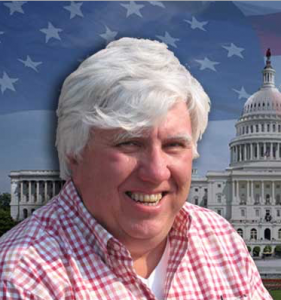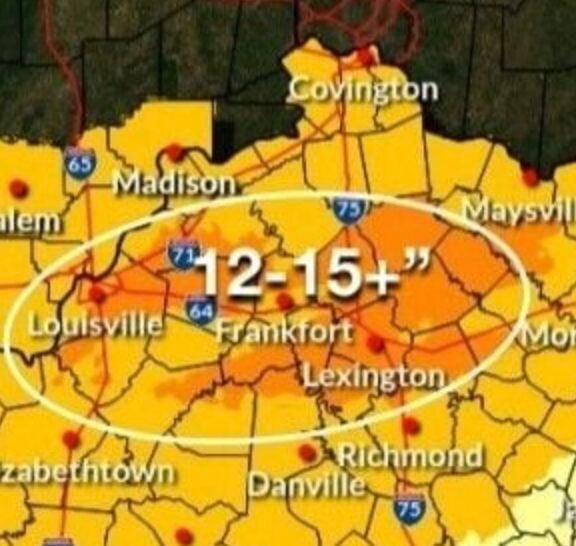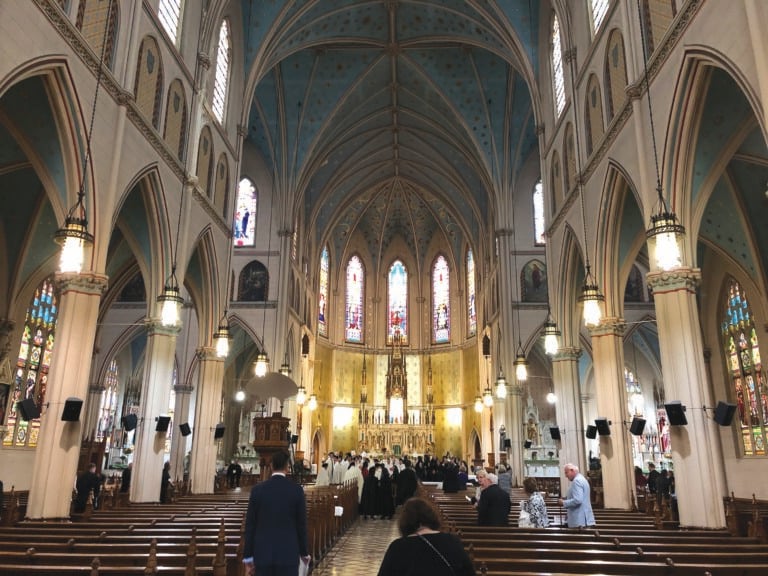On March 4, 1865, just 36 days before the Confederate surrender at Appomattox, effectively ending the Civil War he sought to avoid, Abraham Lincoln delivered his second inaugural, vowing to welcome those who engaged in the rebellion upon their return.
“With malice toward none with charity for all with firmness in the right as God gives us to see the right let us strive on to finish the work we are in to bind up the nation’s wounds, to care for him who shall have borne the battle and for his widow and his orphan ~ to do all which may achieve and cherish a just and lasting peace among ourselves and with all nations,’’ the great Kentuckian proposed.
Last Saturday, millions of Americans took to the streets in what was termed a “No Kings’’ protest, a reaction to the heavy-handed, authoritarian policies President-cum-Dictator Donald J. Trump has implemented since he was sworn in on Jan. 20.
So, how did Trump react during his “malice toward none with charity for all’’ moment?
The leader of this country posted on Truth Social, his social media platform, a 19-second video, produced through artificial intelligence, that depicted him sporting a crown and piloting what appears to be a military jet with “King Trump’’ written on the side. The jet navigates into position over protestors, presumably those engaged in a “No Kings’’ gathering, and dumps what appears to be excrement upon them, thus bathing them in filth.

Later in the week, after dreaming of burying his detractors in raw sewage, Trump compared himself favorably to both Lincoln and the nation’s first president, George Washington, who guided the burgeoning nation through the Revolution and led its government through the first eight years.
“Hey, they didn’t put out eight wars, nine coming,” he said. “We put out eight wars, and the ninth is coming, believe it or not.”
Don’t believe it. Conflict continues in several of the countries he has cited and some of those wars he claimed to end didn’t exist.
The comparison cited reveals what might be the greatest failing of the administration of Donald J. Trump – he does not present himself as the leader of the entirety of the 342 million people who inhabit this land. While members of the cult of personality that embrace him can expect beneficial treatment, those who deviate are regularly punished and – as displayed in that 19-second video – mocked.
Trump has basically acknowledged he has no use for a large segment of the populace. Speaking at the memorial service for conservative political activist Charlie Kirk, tragically gunned down last month, his widow, Erika, declared that she has forgiven the shooter. Trump, in turn revealed he is not one to forgive those he considers enemies.
“(Kirk) did not hate his opponents,’’ Trump said. “He wanted the best for them. That’s where I disagreed with Charlie. I hate my opponent, and I don’t want the best for them. I’m sorry, Erika. But now Erika can talk to me and the whole group, and maybe they can convince me that’s not right, but I can’t stand my opponent.”
The problem is obvious. Trump sees about half of the U.S., those who did not vote for him, or have since expressed dissatisfaction with his leadership, as an opponent and, to quote him, “I hate my opponent.’’
It goes beyond that. Appearing on Fox and Friends shortly after Kirk’s death, conservative television host Ainsley Earhardt asked Trump how he intended to “fix this country” and see to it that the U.S. can “come back together.”
Trump’s response: “I’ll tell you something that’s going to get me in trouble, but I couldn’t care less.’’
It’s hard to imagine that any previous president has detested as many of the citizens he was elected to represent than Donald J. Trump. Even Richard Nixon, perhaps the most cynical president in history before the current office holder, that is, ran a successful presidential campaign in 1968 based on the proposition of uniting a nation deeply divided over issues like the Vietnam War and civil rights. He often cited a sign held by a girl during a campaign stop in Ohio with the message, “Bring Us Together,’’
In his victory statement, Nixon said, “It was almost impossible to see, but a teenager held up a sign, ‘Bring Us Together.’ And that will be the great objective of this administration at the outset, to bring the American people together.’’
Now, Nixon failed to fulfill that promise. Several things, like Watergate and his own besotted personality, got in the way. But his intent, at least, was a long way from “I couldn’t care less.’’
So, the question becomes can a house divided against itself, as the nation is currently experiencing, stand with a president who abhors millions and millions of people residing in that house?
I covered the White House for the Scripps Howard News Service for six years, beginning at the tail end of the administration of Democrat Bill Clinton and halfway through the second term of Republican George W. Bush. Concentrating on the latter, it’s fair to say Bush led a very conservative administration and historians will likely determine he wasn’t very successful, engaging in an unnecessary war with Iraq – they never found those weapons of mass destruction — and presiding during the housing bubble that led to the Great Recession.
Despite those failings, Bush sought to do what he thought best for the country and he certainly held no contempt for the people who elected him to serve as the leader of this nation. You can’t say that about Trump who is seeking to use the Justice Department to persecute his enemies, openly scorns those who oppose him – a growing number, by the way – and exhibits no intent to close the gaps that separate America.
He is, in fact, the gap.
Now there’s reason to fear Trump is taking a step further in attempting to silence his critics, which might prove to be the most dangerous initiative of them all.
The Lord of Mar-a-Lago has issued National Security Presidential Memorandum 7, titled “Countering Domestic Terrorism and Organized Political Violence” with the intended purpose of investigating “domestic terrorism and organized political violence.”
The order empowers federal law enforcement agencies and Joint Terrorism Task Forces to investigate activist groups, particularly, apparently, those left-of-center. Stephen Miller, Trump’s deputy chief of staff and a rabid political operator, said the initiative marks “the first time in American history that there is an all of government effort to dismantle left-wing terrorism.”
The devil as always is in the details. It’s being left to Attorney General Pam Bondi, who has proved to be a cancer in the body politic, to submit a list of groups to be designated as domestic terrorists. Such entities, the document states, can be considered if they are identified as being anti-American, anti-capitalism, anti-Christianity, are “extremist’’ on migration, race or gender or display hostility toward those who hold “traditional American views’’ on morality, family or religion.’’
That involves a pretty wide swath of America. Does being an anti-capitalist socialist, for instance, open you to investigation by federal authorities for domestic terrorism? What about a member of the NAACP?
Writing in the Los Angeles Times, Jason M. Blazakis, a professor at the Middlebury Institute of International Studies and former director of the State Department’s Counterterrorism Finance and Designations Office in the Bureau of Counterterrorism, said of Memorandum 7, “the blueprint is clear: free expression, political dissent and municipal autonomy are in the crosshairs.’’
“Cloaked in the language of protecting Americans from terrorism, it opens the door to weaponizing federal law enforcement against the right’s political rivals,’’ Blazakis said, noting that there are already plenty of laws prohibiting violence of all sorts, political or not.
“The danger of the order is in its symbolism, as the administration begins to stress-test just how far it could go in labeling domestic opponents as enemies of the state,’’ he said.
More than 3,000 non-profit groups have taken notice of the potential danger to free expression by what is called NSPM-7. In an open letter first reported by Newsweek, the groups said:
“We won’t mince words. No president — Democrat or Republican — should have the power to punish nonprofit organizations he disagrees with. That is not about protecting Americans or defending the public interest. It is about using unchecked power to silence opposition and voices he disagrees with. That is un-American and flies in the face of the Constitution, including the First Amendment bar on targeting organizations for their advocacy.”
The president of the United States openly disparages millions of people he represents. Now he’s trying to shut them up.
Why does anyone stand for this?

















